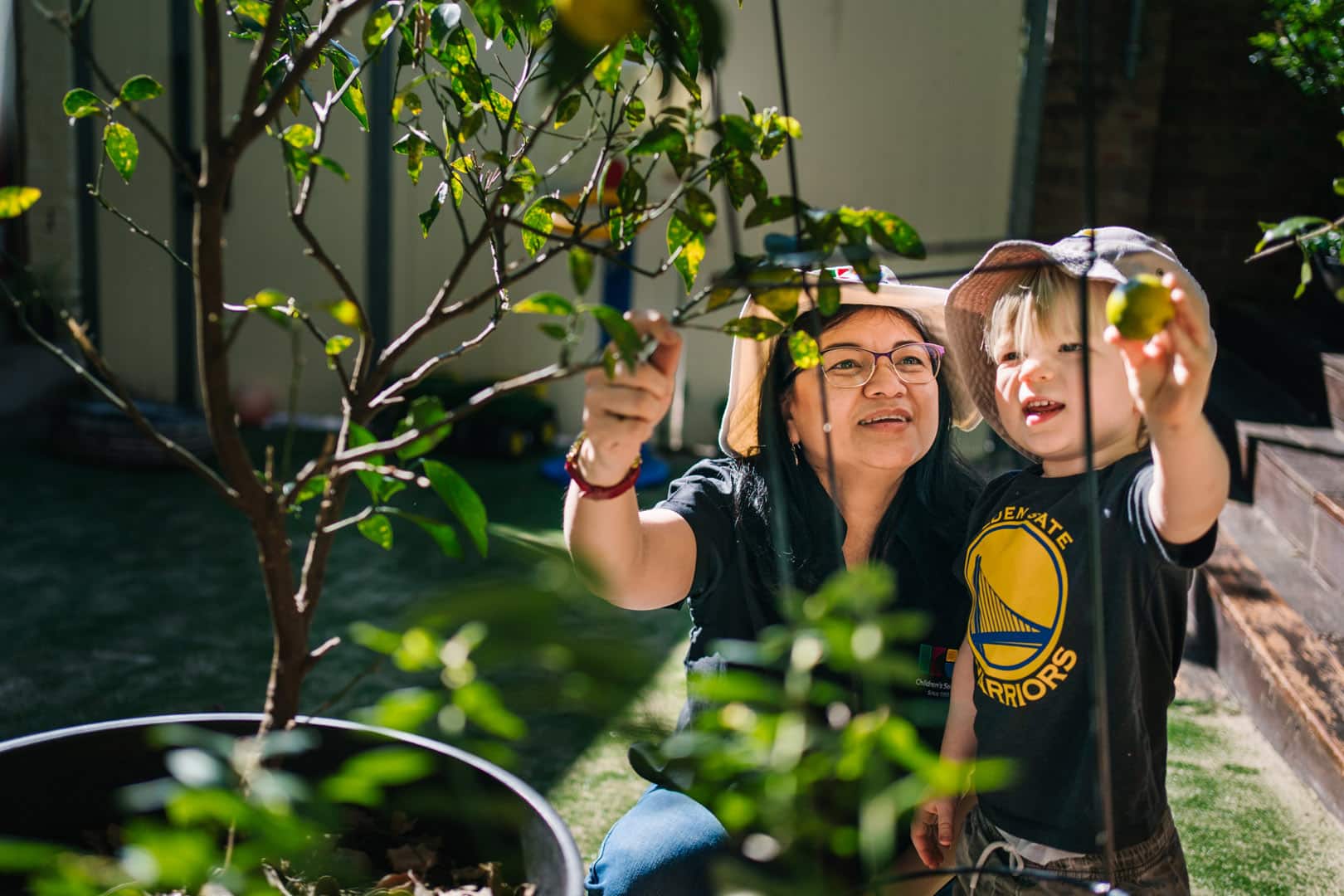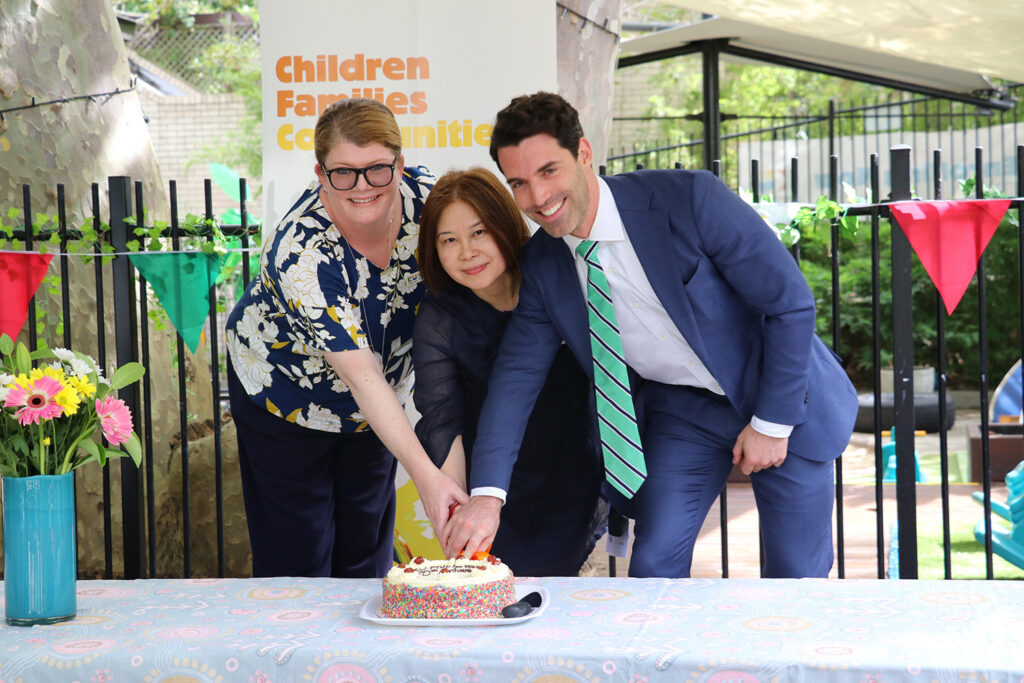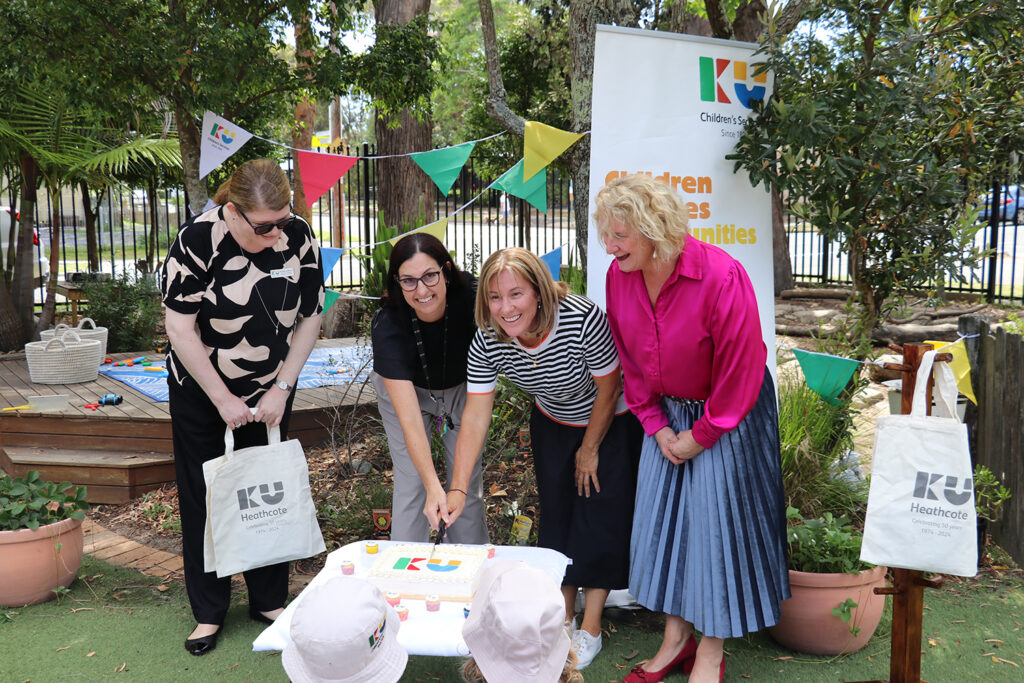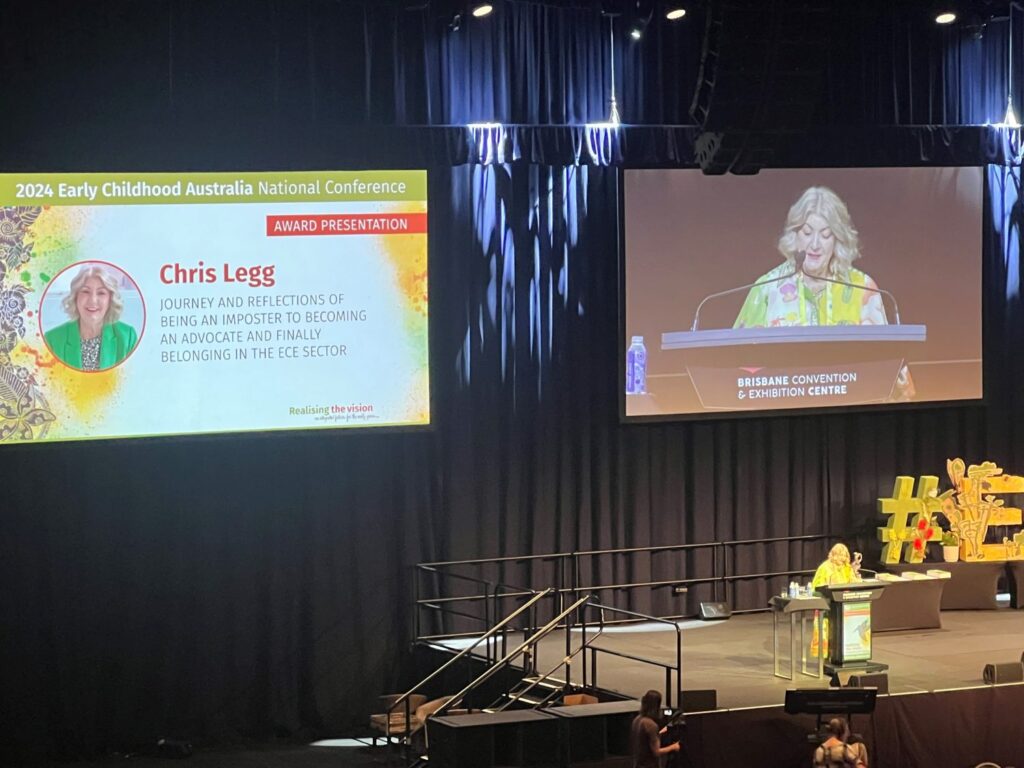
Communities for sustainable environments
Deb Watson shares her insights into the values, perspectives and opportunities for building a community of sustainable practice within our early childhood centres.
By Deb Watson, KU Sustainability Manager
March 2021
What comes to mind when you think about sustainable environments? Perhaps a discussion within the team might identify things like having gardens, compost bins and worm farms. On further reflection you might also add, harvesting rainwater for use and conserving energy, possibly reducing waste and eliminating single use plastics while also thinking about the resources we use and reducing toxins. These activities are worthy but only part of the big picture in creating sustainable environments – if we wish to ensure these activities are sustained, we must consider the basic values that sit forefront of why we do these things and how we communicate this to our community.
Adapting a Permaculture perspective, I offer this analogy; to think of your community as a tree, one of many within a forest. You might imagine that the activities such as a worm farm, compost bins and water tanks are the tree’s fruit – but to benefit from sustained fruit we need to look to the tree’s strong branches, sturdy trunk, its roots being nourished by the soil and the micro and macro environment that it sits within.
Begin by considering this tree as representing your early childhood service, sitting within a community of other trees supporting each other and encouraging the saplings along. Here the soil is rich with opportunity and nurtured by strong ethical values, where the trunk represents your well recognised philosophy, and each branch is an active policy designed to produce sustained fruits.
While it is true that trees adapt and may survive within poor conditions, how much more difficult is it for that tree to continually produce great fruit? Without values that balance the needs of people with the planet, our tree cannot sustain its fruit year after year.
We can ask ourselves, how does what we believe influence our decisions and actions? Do we believe that the Earth is a resource for all of life including those not yet born and therefore have a responsibility to ensure our planet can sustain all species, Enough for all forever!
Do we believe in a socially just and equitable world and seek wellness for all life and Earth systems? Because the fact is we are deeply entangled with our Earth and the systems it encompasses. Our actions impact on these systems, whether of a natural, social, or political nature – all are interconnected.
As you consider sustainable environments, a good starting point is to review the trunk of your tree, your philosophy – is it grounded in these values and does it speak of your desire to ensure your actions contribute to a sustainable world? Do your branches, representing the policies, provide guidance and resources to support the team enact their intention? Consider how this comes together within your Quality Improvement Plan – do you need more information or support, do you have you a network of others to communicate with?
KU has also published a resource to support services on the BEST journey to transform their practice, Because we care: Education for sustainability in action.
Want to know more?
If you would like further support to become a more sustainable community, you may like to join KU’s Becoming Eco Smart Together (BEST) program. The BEST introduction is a series of four sessions supporting education communities with the why and how of becoming more sustainable, with tools to support transformation.
KU Learning and Development also offers additional sessions for those wishing to engage in specific topics such as utilising the 4 Big Ideas with children; stepping forward with the United Nations Sustainable Development Goals; leading change for a sustainable world; and peace talks – becoming sustainable to support peace. You will also find several other sessions around waste reduction, sustainable art and venturing beyond the gate where nature waits.
KU has also published a resource to support services on the BEST journey to transform their practice, Because we care: Education for sustainability in action.



